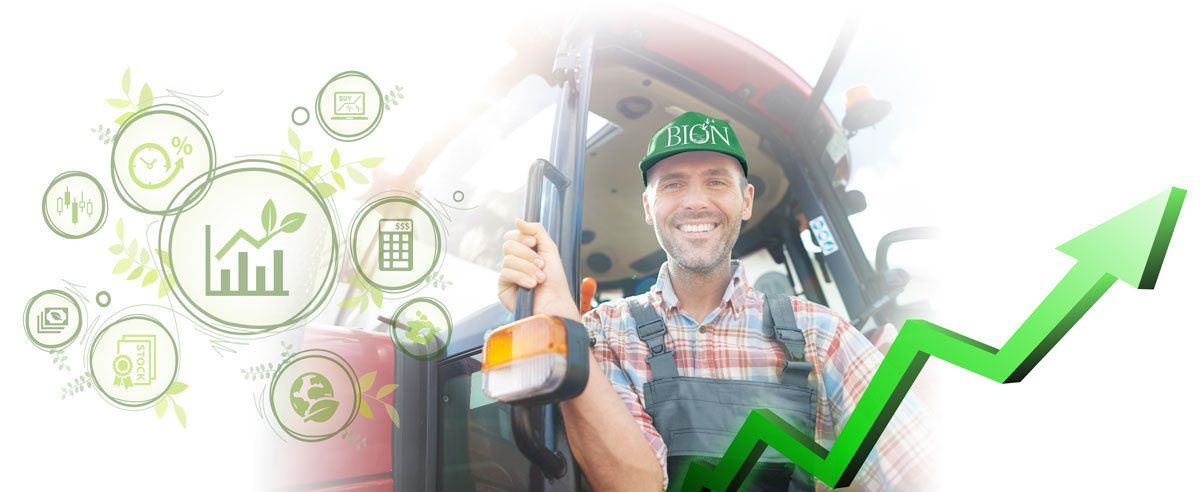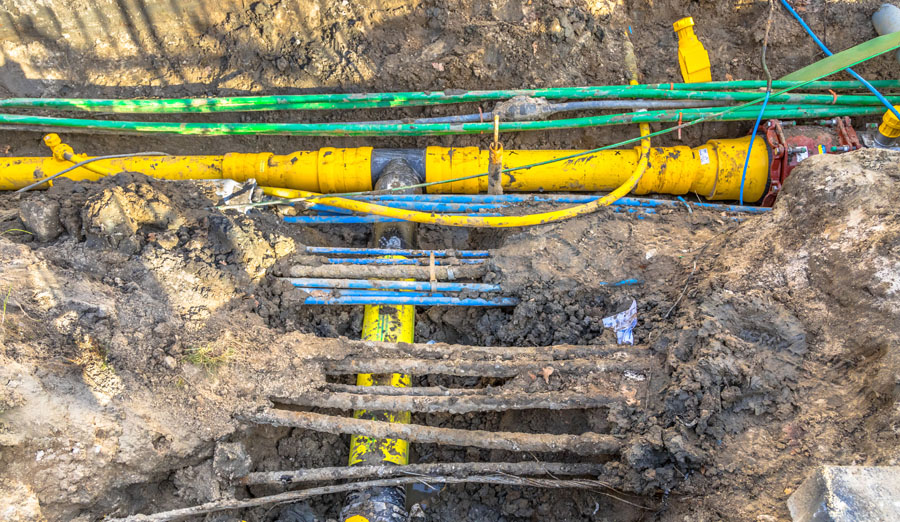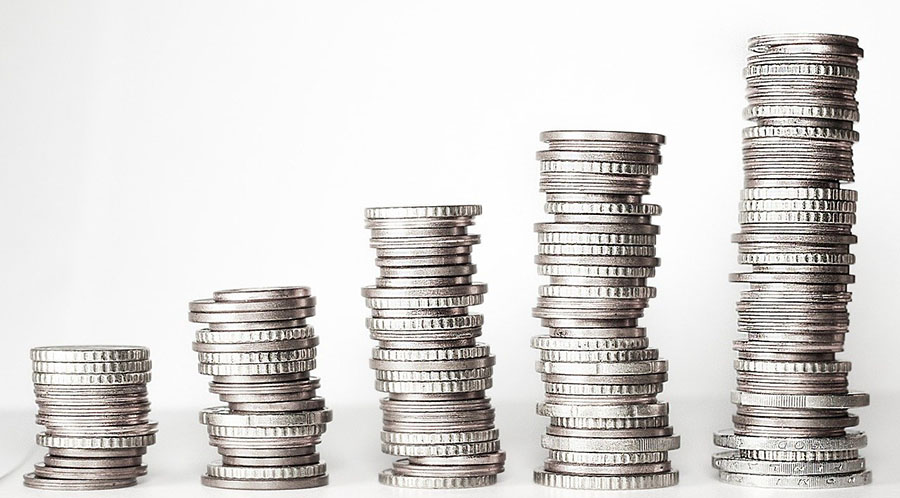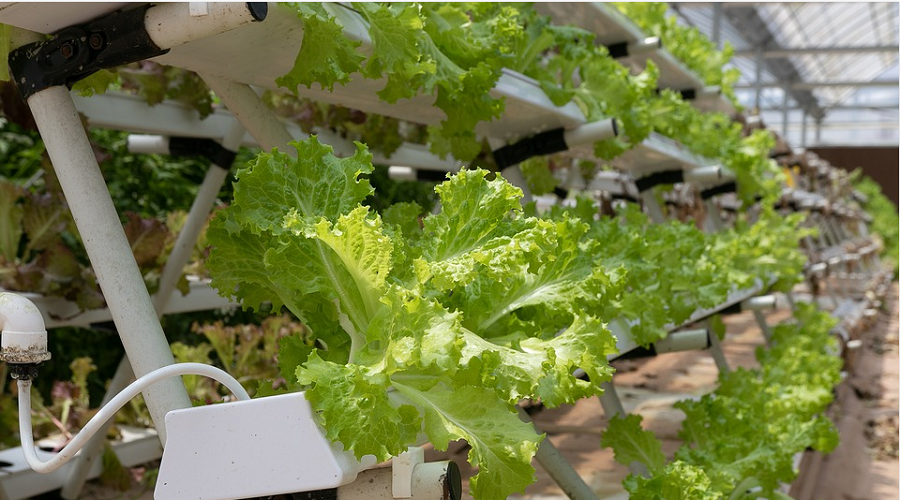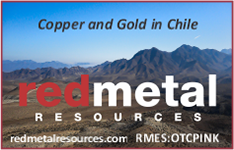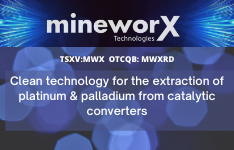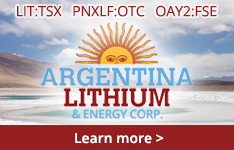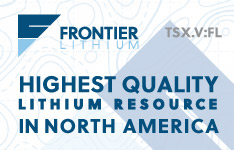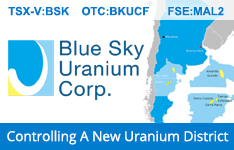Note: On July 30, Bion announced Southern Illinois University will begin a trial to evaluate ammonium bicarbonate as a nitrogen fertilizer.
There's no way Bion Environmental Technologies Inc. (BNET:OTCQB) should only be a $50 million stock today. This is the company that will change agriculture. Instead of John Deere hats, you'll see farmers wearing Bion logos.
You see, this tiny company is addressing a huge market—closing the yield gap in organic crop production. And a key to this barrier opens up several huge opportunities in both crop and livestock production.
So, what is a "Yield Gap"?
The yield gap in organic production is the difference between the potential amount a farm can grow organically versus what it could produce with conventional (synthetic) fertilizers. It's the chasm that separates organic farming from conventional farming.
"If you don't own it yet, you should dig in and see if it fits your portfolio. Because I guarantee the giant agribusinesses are doing that same thing."
Fertilizer, particularly nitrogen (or lack thereof), is the main reason organic farmers' struggle with yield gap. That's because there are few sources of a readily available organic nitrogen fertilizer that can address this problem, and what's out there is expensive.
However, it's a critical nutrient. All crops—conventional and organic—start off with an early (pre-planting) application of fertilizer: manure for organic and manure and/or synthetic fertilizer for conventional. But an application of readily available nitrogen during the mid- to late-growing season is a key part of maximizing yield in conventional production. The high cost of organic nitrogen makes that uneconomic for most organic crops…which leads to the yield gap.
Synthetic nitrogen fertilizer uses the Haber Bosch process to combine atmospheric nitrogen with hydrogen under high pressure. It is an extremely cheap process. That's why it only costs farmers about 30¢ per pound of nitrogen.
However, that process requires natural gas—a fossil fuel. It's cheap, but for folks concerned about their carbon footprint, it's a problem. And the crops grown with it cannot be certified as organic.
Organic nitrogen, on the other hand, can run from $3.00 to over $1,000 per pound of nitrogen, making it unaffordable for many crops, including field corn. Further, based on their physical characteristics, the lower priced options do not lend themselves to mid- to late-season application when the crops are taller. A google search will turn up about 23 different organic nitrogen fertilizers appropriate for mid-season application. The average price is about $86 per pound…that's 286 times more expensive.
That's one big reason organic farming is so much more cost intensive (and less "sustainable"). And it's the source of the yield gap.
But Bion has a solution. The company has a patented process to convert livestock waste to a water-soluble and readily available organic nitrogen fertilizer. The company announced a field corn trial in its recent press release:
Bion Environmental Technologies, Inc. (OTC QB: BNET), a developer of advanced livestock waste treatment technology that largely mitigates environmental impacts while recovering high-value coproducts, announced it has executed an agreement with University of Nebraska-Lincoln (UNL) to study the agronomic performance of Bion's biobased ammonium bicarbonate fertilizer, AD Nitrogen, on field corn."
The study will measure the effect of AD Nitrogen on yield compared to both current organic nitrogen and synthetic fertilizer.
Bion's patented process recovers nitrogen from animal waste. The process does a lot of good. It creates a natural, organic nitrogen fertilizer by recycling animal waste.
In the U.S. alone, livestock produces between 1.2 billion to 1.4 billion tons of waste per year. According to the EPA, that manure holds more than 6.8 million tons of nitrogen. That's nearly 1,000 tons of nitrogen per square mile of farmland.
Half of our crops in America use manure as fertilizer.
Excess nitrogen creates harmful algae blooms in rivers and streams and contaminates the groundwater where many folks get their drinking water. The U.S. Environmental Protection Agency (EPA) calls excess nitrogen: "one of the greatest water quality problems in America today."
Bion's process captures and stabilizes that nitrogen, which not only keep it out of the water, it upcycles it into a high-value organic nitrogen fertilizer product. The process creates a virtuous circle, where the farmer applies organic nitrogen to crops, feeds the harvest to livestock, and recovers the nitrogen from the waste.
Reread that last paragraph, because I just identified TWO potentially billion dollar-plus opportunities: production and sale of fertilizer for organic crop production AND production of certified sustainable and organic GRAIN-FED beef and pork, which is essentially unavailable today at scale. That's another "gap"—call it the "taste and texture gap" between conventional grain-fed and today's organic grass-fed beef and pork.
Bion's approach is a sustainable agriculture system that can make up the yield gap on organic crops.
That opens the door to create an entirely new opportunity to produce sustainable and organic beef. Instead of grass-fed, this beef has the taste and texture that the world expects from U.S. Prime. It's worth a lot of money.
This is a breakthrough in agriculture that will rival the shale boom in the oil industry.
Nitrogen makes up 59% of fertilizer use in the U.S. In 2015, farmers applied over 13 million tons of nitrogen. Even at 30¢ per pound, that's a $7.8 billion market. Organic is the fastest growing segment of US agriculture today. The markets for organic fertilizers alone will break $12.5 billion by 2027, according to industry analysts at Coherent Market Insights.
And that market will continue to grow.
According to a study done by the University of California, Davis, fertilizer use could grow 40% by 2050. And that means the market for organic fertilizers must grow too.
An inexpensive nitrogen fertilizer made from animal waste will be a game-changer for the industry. It's a huge market with global potential. But the market hasn't caught on yet.
We know it will because sustainable agriculture is a huge business. It's not a fad. It's a trend that is clearly here to stay and grow.
Investors like SLM Partners are raising huge sums of money for sustainable agriculture. It has a fund that focuses on organic corn and soybean production in the U.S., both of which require organic nitrogen fertilizer.
The Bion story is a fat pitch for anyone who understands the agriculture market. It's an overnight success about to happen.
Bion has completed its third-generation treatment platform. It is about to scale it up to develop large commercial projects. The impact will be huge, both for the company and for the agriculture industry.
It'll be huge because it's beneficial to everyone—the farmers, the consumers, the communities, and the government.
If you don't own it yet, you should dig in and see if it fits your portfolio. Because I guarantee the giant agribusinesses are doing that same thing.
Once Bion inks some joint ventures for its organic nitrogen fertilizer and organic beef, someone will buy them. Those patents and intellectual property will be far too valuable for such a small company
Any of the giants like BASF, Yara, Mosaic, Agrium, in the fertilizer space, or Costco/Kirkland, McDonalds or Cargill, on the animal protein side, could scale this technology quickly. It's too big a market, with billions of dollars at stake.
The big companies will make a move, just to beat their competitors. That means Bion might not last much longer.
Do your own due diligence, but Bion is one to look at.
Good Investing,
--Matt Badiali
Reach Matt Badiali at www.mattbadiali.net.
Matt Badiali is a geologist and independent financial analyst. He spent fifteen years researching and writing about great investments inside the natural resources sectors. He can be reached at www.mattbadiali.net.
[NLINSERT]
Streetwise Reports Disclosure:
1) Matt Badiali: I, or members of my immediate household or family, own shares of the following companies mentioned in this article: None. I personally am, or members of my immediate household or family are, paid by the following companies mentioned in this article: None. I determined which companies would be included in this article based on my research and understanding of the sector.
2) The following companies mentioned in the article are sponsors of Streetwise Reports: None. Click here for important disclosures about sponsor fees. The information provided above is for informational purposes only and is not a recommendation to buy or sell any security. As of the date of this article, an affiliate of Streetwise Reports has a consulting relationship with Bion Environmental Technologies. Please click here for more information. An affiliate of Streetwise Reports is conducting a digital media marketing campaign for this article on behalf of Bion Environmental Technologies. Please click here for more information.
3) Statements and opinions expressed are the opinions of the author and not of Streetwise Reports or its officers. The author is wholly responsible for the validity of the statements. The author was not paid by Streetwise Reports for this article. Streetwise Reports was not paid by the author to publish or syndicate this article. Streetwise Reports requires contributing authors to disclose any shareholdings in, or economic relationships with, companies that they write about. Streetwise Reports relies upon the authors to accurately provide this information and Streetwise Reports has no means of verifying its accuracy.
4) The article does not constitute investment advice. Each reader is encouraged to consult with his or her individual financial professional and any action a reader takes as a result of information presented here is his or her own responsibility. By opening this page, each reader accepts and agrees to Streetwise Reports' terms of use and full legal disclaimer. This article is not a solicitation for investment. Streetwise Reports does not render general or specific investment advice and the information on Streetwise Reports should not be considered a recommendation to buy or sell any security. Streetwise Reports does not endorse or recommend the business, products, services or securities of any company mentioned on Streetwise Reports.
5) From time to time, Streetwise Reports LLC and its directors, officers, employees or members of their families, as well as persons interviewed for articles and interviews on the site, may have a long or short position in securities mentioned. Directors, officers, employees or members of their immediate families are prohibited from making purchases and/or sales of those securities in the open market or otherwise from the time of the decision to publish an article until three business days after the publication of the article. The foregoing prohibition does not apply to articles that in substance only restate previously published company releases. As of the date of this article, officers and/or employees of Streetwise Reports LLC (including members of their household) own securities of Bion Environmental Technologies, a company mentioned in this article.



